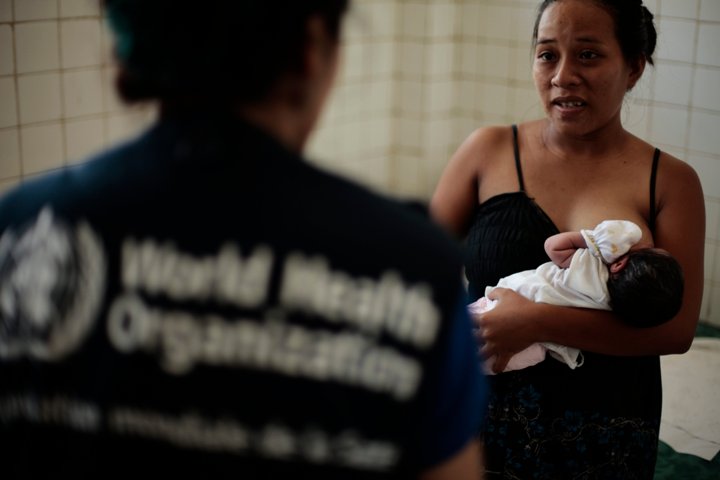Global Push for Breastfeeding Support Gains Urgency as Coverage Falls Short
Breastfeeding is widely recognized as one of the most effective interventions for promoting infant health, development, and survival.

As the world celebrates World Breastfeeding Week under the theme “Prioritize breastfeeding: Create sustainable support systems”, global health authorities are sounding the alarm over persistently low breastfeeding rates and the lack of investment in maternal and newborn support services. The World Health Organization (WHO) and UNICEF are calling on governments and stakeholders to dramatically scale up efforts to ensure that every mother has access to the resources and guidance she needs to breastfeed successfully.
Breastfeeding: A Lifesaving, Economically Smart Investment
Breastfeeding is widely recognized as one of the most effective interventions for promoting infant health, development, and survival. Acting as a child’s first vaccine, breastmilk offers powerful protection against common childhood illnesses such as diarrhoea and pneumonia, two of the leading causes of child mortality worldwide. It also strengthens a baby’s immune system and supports cognitive and emotional development.
In addition to health benefits, investing in breastfeeding yields substantial economic returns. For every US$1 invested in breastfeeding promotion and support, it is estimated that US$35 is returned in terms of healthcare cost savings, improved productivity, and reduced childhood illness and mortality. Despite this, current investments in breastfeeding remain critically inadequate.
A Global Coverage Gap: Only 48% Exclusively Breastfed
Currently, only 48% of infants under six months of age are exclusively breastfed—a rate far below the World Health Assembly’s target of 60% by 2030. This shortfall is attributed to a range of interconnected barriers facing mothers, healthcare workers, and health systems, particularly in low- and middle-income countries.
For many women, the support needed during the crucial early days and weeks after birth is absent or inconsistent. Hospital discharges often occur before proper breastfeeding has been established, and many mothers return home without the guidance or follow-up care necessary to maintain exclusive breastfeeding.
Health Systems Falling Short
One of the most pressing challenges is the lack of trained personnel in maternal and child health settings. According to WHO and UNICEF, only 20% of countries provide comprehensive training on infant and young child feeding (IYCF) to doctors and nurses who serve new mothers. As a result, millions of mothers leave healthcare facilities without basic information on how to initiate breastfeeding or when and how to introduce complementary foods.
Additionally, in many parts of the world, health systems remain under-resourced, fragmented, and poorly coordinated. Hospitals and clinics often lack dedicated lactation consultants, trained midwives, or breastfeeding counsellors. In emergencies—such as humanitarian crises, natural disasters, or conflict settings—support for breastfeeding is even more precarious.
A Six-Point Agenda for Action
To address these gaps, WHO and UNICEF are urging governments, health institutions, and international partners to implement the following actions:
-
Ensure adequate investment in quality, equitable maternal and newborn care, with breastfeeding support as a core service.
-
Increase national budget allocations for breastfeeding programs and community-level interventions.
-
Integrate breastfeeding counselling into routine maternal and child health services—including prenatal, delivery, and postnatal care.
-
Train all health workers, including in emergency settings, with the skills and tools necessary to support breastfeeding.
-
Strengthen community health systems to offer ongoing support to every mother, including home visits and peer counselling up to two years postpartum and beyond.
-
Enforce the International Code of Marketing of Breast-milk Substitutes to prevent misleading promotion of formula milk and protect breastfeeding in all health facilities.
A Global Imperative for Mothers and Babies
Breastfeeding is not just a personal choice, it is a global health priority with far-reaching consequences. It can prevent 820,000 child deaths annually and save millions of dollars in healthcare costs, yet its success depends on strong, integrated health systems and sustained investment.
“Strengthening health systems to support breastfeeding is not just a health imperative—it is a moral and economic imperative,” said WHO and UNICEF in their joint appeal. “We must build resilient, inclusive healthcare systems that support every mother and child, no matter their circumstances.”
As the global community observes World Breastfeeding Week, there is a clear message: support for breastfeeding must go beyond slogans and into sustained policy, funding, and action. The wellbeing of future generations depends on it.









